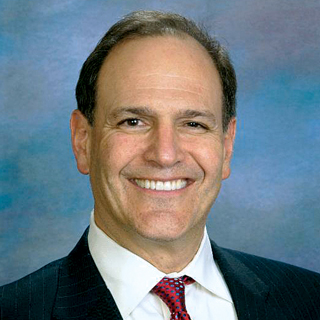
Marriage vows are hard to honor when you are prohibited from being with a spouse who is dying alone in a nursing home, a victim of COVID-19.
Two family friends, married for well over 50 years, endured the ultimate suffering – one dying from COVID in a skilled nursing facility, and the other quarantined in her home, prohibited from visiting her spouse.
Unfortunately, this untimely, terrible and lonely demise has become commonplace.
In this case, the community-dwelling spouse repeatedly complained to the state Department of Health, triggering complaint surveys and compounding the humanitarian challenge facing the SNF. Upon the resident’s death, his spouse requested his medical chart, no doubt preparing to file a lawsuit for her loved one’s COVID-related death.
The separation rationale is reasonable — to prohibit visitors because of the fear that COVID might spread to the vulnerable elderly population living in SNFs. However, while the resident is cared for and attended to, what about the community-dwelling spouse? Might the separation cause a downward cascade of painful experiences for her and for the marital relationship itself, with perhaps nominal effort by the SNF to address the needs of the community-dwelling spouse?
SNF personnel are acutely aware, sensitive and effective in dealing with the needs of residents. But little research has been done to understand their spouses’ needs and the impact of separation on the marriage.
The few studies reach the same conclusions:
Understanding the emotional impact of a spouse who has placed a loved one in a long-term care facility will provide family and professionals with both an awareness of the emotional hardships that may be occurring for a spouse and the adverse impact on that resident. Even though the non-resident spouse may present him or herself as having no outward difficulty to staff, family and professionals, an understanding of the emotions and feelings underlying the placement of his or her loved one will help spouses in possible SNF interventions.
We must recognize a non-resident spouse’s emotions upon separation from their husband or wife. Post-SNF spousal roles, according to researcher Barbara Hunt, may be reversed, thereby adding significant pressure in addition to feelings of isolation and grief.
The community-dwelling spouse, upon placement of a loved one suffering from dementia in the SNF, might even question the marriage. The SNF can and should play a significant role in understanding the very difficult efforts and emotional stress the non-resident is experiencing while the resident comes to grips with the new reality.
In her dissertation, Hunt found that a resident’s life and marriage can be improved if the community spouse is integrated into the resident’s new life. Participation in numerous activities, many of which are mandated by federal and state law, such as family council, care plan meetings and visitation, may derive new meaning for the SNF when understanding the efforts and perspective of the Community Spouse.
Hunt’s research focuses and explains the following themes:
- Reduction of friends
The resident’s outside socialization continues to erode, and the SNF evolves into the non-resident’s primary social experience. This occurs partly because of the many hours spent at the SNF, and partly because friends often reduce visitation to the SNF resident.
- Ease or difficulty with change
Sadness continues to be felt by both spouses, even long-after the resident has been admitted.
- Companionship
Community-dwelling and resident spouses most miss sharing activities together.
- While the quality of marriage often declines, many spouses remain committed to each other “till death do us part.”
Often, both spouses feel angry and question “why us?” As they try to understand their new lives, they typically consider that their vows to each other remain forever, “for better or for worse, in sickness and in health.”
Hunt’s study suggests SNF staff:
- Monitor the non-resident’s feelings. While the community-dwelling spouse may appear emotionally comfortable, assume that feelings of loneliness, sadness and anxiety are being experienced. Do so regardless of the length of the resident’s stay.
- Consider providing meals for the non-resident spouse – without charge — to address a strong sense of loneliness and loss of companionship.
- Encourage the non-resident to increase involvement with family and friends.
- Offer counseling or other support to help assist the non-resident make the most of life and increase involvement with friends and family.
SNF care for the resident is critical and currently being provided very well; however, the adverse toll on the needs of the spouses and marriages must also be attended to with care and compassion.
By caring for a spouse, the SNF might also manage a second goal to limit Department of Health complaint surveys and professional liability lawsuits. Appropriate care and compassion for the spouse most effectively reduces the likelihood of an adversarial relationship, especially during this pandemic.





